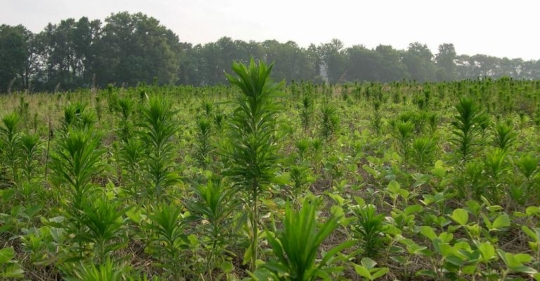Explore our blog featuring articles about farming and irrigation tips and tricks!
Start Planning Your Attack On Marestail Now

By: Chris Torres
A look at the most recent Crop Progress Report for Pennsylvania shows that marestail, or horseweed, has started to emerge in some fields across the state and in other parts of the Mid-Atlantic.
Controlling this weed can be very challenging, as most farmers already know, but the sooner you try to control it the better.
Most fall-emerged plants survive winter and become harder to control in spring, according to Penn State Extension.
Seedlings have small lobed leaves that grow into rosettes. The rosettes will then “bolt” into upright stems that produce up to 200,000 seeds and reach up to 6 feet tall.
Once plants grow above 5 inches tall, they are very difficult to control with herbicides alone, according to Penn State Extension.
Dwight Lingenfelter, Extension weed science educator, says that farmers should use an inexpensive weed control program in fall and “really go after it” with effective spring burndowns and residuals.
“Cover crops can be useful as well, especially a thick cereal rye in combination with 2,4-D or dicamba sprayed in the fall or early spring before the rye gets too tall and the herbicide gets intercepted,” he says.
Here are other tips for effective fall marestail control:
Stay up to date on all T-L news and get alerts on special pricing!


